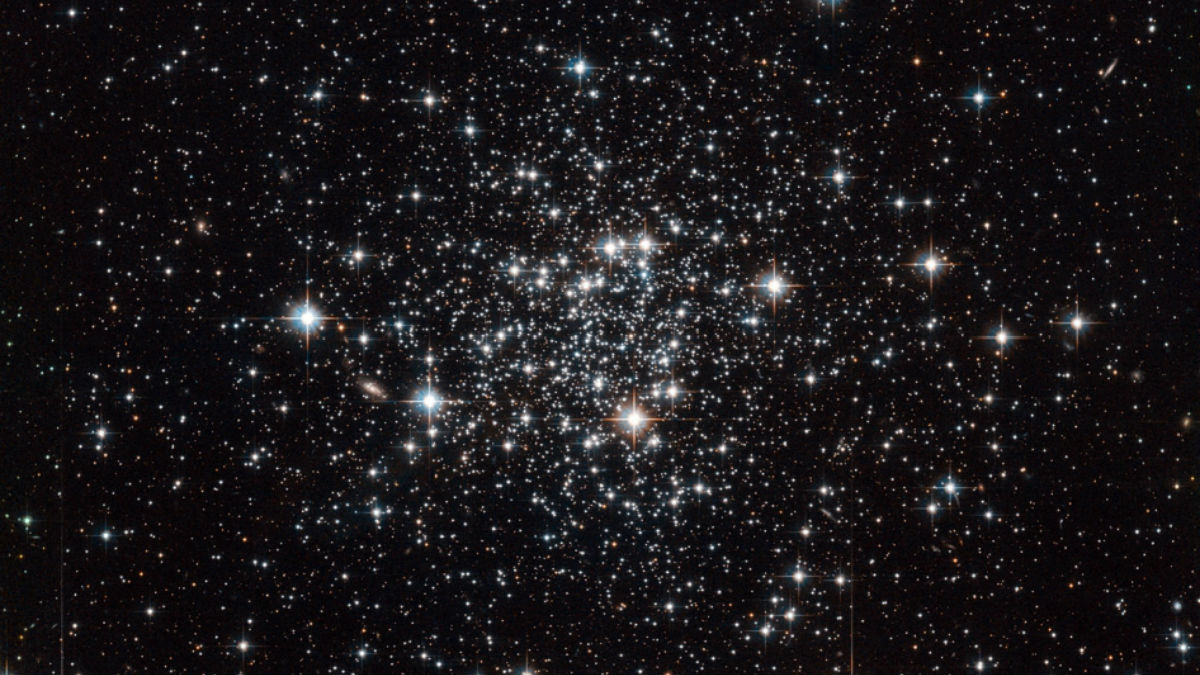Have astronomers identified 'sweet spot' for alien life?
Experts suggest star clumps could harbour networks of civilisations

A free daily email with the biggest news stories of the day – and the best features from TheWeek.com
You are now subscribed
Your newsletter sign-up was successful
Clusters of stars could yet prove a happy hunting ground in the search for alien life, according to new research.
Tightly packed clumps of stars found at the fringe of the Milky Way were once considered fertile ground in the search for extraterrestrial intelligence, reports the BBC.
However, efforts to find alien life have brought little success, leading many scientists to look further afield.
The Week
Escape your echo chamber. Get the facts behind the news, plus analysis from multiple perspectives.

Sign up for The Week's Free Newsletters
From our morning news briefing to a weekly Good News Newsletter, get the best of The Week delivered directly to your inbox.
From our morning news briefing to a weekly Good News Newsletter, get the best of The Week delivered directly to your inbox.
Now two astronomers say recent discoveries mean the search should continue as the areas represent a "globular cluster opportunity".
Rosanne Di Stefano, of the Harvard-Smithsonian Center for Astrophysics in the US, and Alak Ray, from the Tata Institute of Fundamental Research in India, pointed to the discovery of PSR B1620-26 b – also known as Methuselah - the only exoplanet so far detected orbiting stars within a globular cluster.
"I think most of us would say that the discovery of that one, bizarre planet indicates that there must be other planets in that cluster," said Dr Di Stefano.
"Now we can use the information that we've gleaned from other planet discoveries – and there are over 2,000 planets known today – to ask: Is it likely that they'd be in globular clusters?"
A free daily email with the biggest news stories of the day – and the best features from TheWeek.com
She added: "A globular cluster might be the first place in which intelligent life is identified in our galaxy."
The scientists have also identified what they call a "sweet spot" where planets could survive the gravitational pull of the packed clusters.
Other experts have cautiously welcomed the suggestion. "The idea gives rise to notions of not just one, but whole networks of interconnected alien civilizations," says EarthSky.
Speaking to the BBC, Alan Penny, an astronomer at the University of St Andrews and co-ordinator of the UK Seti Research Network, said of the discovery: "I think it does lift globular clusters up in the wish list of targets to search."
-
 Why is the Trump administration talking about ‘Western civilization’?
Why is the Trump administration talking about ‘Western civilization’?Talking Points Rubio says Europe, US bonded by religion and ancestry
-
 Quentin Deranque: a student’s death energizes the French far right
Quentin Deranque: a student’s death energizes the French far rightIN THE SPOTLIGHT Reactions to the violent killing of an ultraconservative activist offer a glimpse at the culture wars roiling France ahead of next year’s elections
-
 Secured vs. unsecured loans: how do they differ and which is better?
Secured vs. unsecured loans: how do they differ and which is better?the explainer They are distinguished by the level of risk and the inclusion of collateral
-
 Nasa’s new dark matter map
Nasa’s new dark matter mapUnder the Radar High-resolution images may help scientists understand the ‘gravitational scaffolding into which everything else falls and is built into galaxies’
-
 Moon dust has earthly elements thanks to a magnetic bridge
Moon dust has earthly elements thanks to a magnetic bridgeUnder the radar The substances could help supply a lunar base
-
 How Mars influences Earth’s climate
How Mars influences Earth’s climateThe explainer A pull in the right direction
-
 The ‘eclipse of the century’ is coming in 2027
The ‘eclipse of the century’ is coming in 2027Under the radar It will last for over 6 minutes
-
 NASA discovered ‘resilient’ microbes in its cleanrooms
NASA discovered ‘resilient’ microbes in its cleanroomsUnder the radar The bacteria could contaminate space
-
 Artemis II: back to the Moon
Artemis II: back to the MoonThe Explainer Four astronauts will soon be blasting off into deep space – the first to do so in half a century
-
 The mysterious origin of a lemon-shaped exoplanet
The mysterious origin of a lemon-shaped exoplanetUnder the radar It may be made from a former star
-
 The 5 biggest astronomy stories of 2025
The 5 biggest astronomy stories of 2025In the spotlight From moons, to comets, to pop stars in orbit